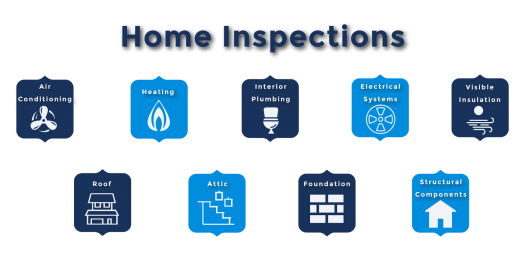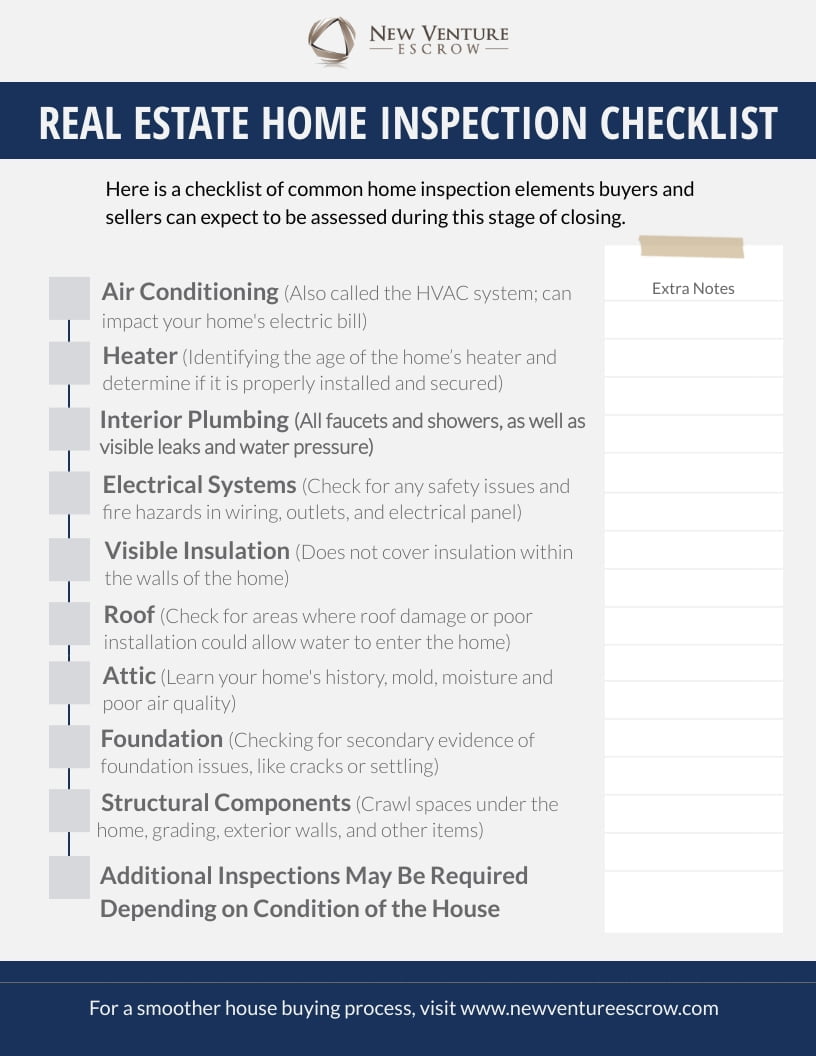Congratulations! Your offer has been accepted on your dream home and you’ve opened up escrow. The next step in the closing process is to hire a home inspector to come out to the house and assess it for anything notable.
This is different from a seller’s disclosure, which is something that the seller documents for the buyer concerning their knowledge about the property for sale. During the escrow inspection period, on the other hand, an inspection is conducted by an independent third party and may reveal defects in the home that even the seller wasn’t aware of.
Sometimes, sellers might hire a property inspector before trying to put their home on the market to advance the escrow process. If you’re working with a realtor, ask your agent for a personal referral of a home inspector near you. You should always do your due diligence.
As a buyer, you should never rely solely on the disclosures of the seller. A full property inspection should always be carried out before moving forward with the home purchase. This way, you don’t end up having to pay expensive repairs for essential home features.
So, what can you expect from a home inspection? What types of inspections will be conducted on your future home? We’ll be covering all that and more in this blog, so you are prepared to ask any questions regarding this important phase of the closing process.

1. Air Conditioning
Did you know that about half of your yearly energy bill goes toward heating and cooling your home? This is why an air conditioning inspection is so important. An inspector will take a look at the HVAC system of your new home and identify potential areas of trouble. An inspector can also give you an idea of the age of the home’s ducting, and whether it might have leaks.
This way, you or the buyer can work on resolving them, which can therefore help boost the efficiency of your HVAC system’s heating and cooling, resulting in more yearly savings.
2. Heater
A home inspector will also be able to identify the age of the home’s heater and determine if it is properly installed and secured. This way, you can get an idea of the heater’s condition and how many years it has left before it needs to be replaced.
3. Interior Plumbing
Interior plumbing refers to all faucets and showers, as well as visible leaks and water pressure. A home inspection will also be able to identify the kind of pipes the house has, their age, and if any pipes are visible. If the pipes are old, the inspector may recommend a secondary inspection to determine if or when they might need to be replaced and how much that would cost.
4. Electrical Systems
It’s also important to understand what type of wiring your home has. An inspector will test all the outlets and make sure there are functional ground fault circuit interrupters (which can protect you from electrocution, electric shock, and electrical burns) installed in areas like the bathrooms, kitchen, garage and outdoors. They will also check your electrical panel for any safety issues and check your electrical outlets to ensure they do not present a fire hazard.
5. Visible Insulation
It’s important to note that a standard home inspection will not cover insulation within the walls of the home, as this requires them to be cut open. However, an inspector will identify any visible insulation and assess it. With this, they will be able to tell you if your home has sufficient insulation to minimize your energy bills and whether there is any asbestos insulation.
6. Roof
A home inspection will check for areas where roof damage or poor installation could allow water to enter the home, such as loose, missing, or improperly secured shingles and cracked or damaged mastic around vents. They will also check the condition of the gutters. Be sure to ask if there was any sagging on the roof, as this may lead to trouble down the road.
7. Attic
If you want to learn more about your home’s history, the attic is where you’ll find it – such as signs of a previous fire as indicated by black or sooty wood and painted rafters. An attic inspection provides the homeowner with key information needed to fight high energy bills, mold, moisture and poor air quality.
8. Foundation
Another important thing to note is that a home inspection can’t identify everything that might be wrong with the property; it only checks for visual cues to problems.
If the foundation is not visible, and it usually is not, the inspector will not be able to examine it directly. Still, they can check for secondary evidence of foundation issues, like cracks or settling. If the home’s doors do not close properly, or the floors are slanted, the foundation might have a crack, but if the crack can’t be seen without pulling up all the flooring in the house, a home inspector can’t tell you for sure if it’s there.
9. Structural Components
The inspector will complete a full inspection of the outside of the structure. This will include climbing into any crawl spaces under the home and using a ladder to reach and inspect the roof, grading, exterior walls, and other items.

Download our handy home inspection checklist for buyers to keep up with the process and mark down any notes or questions!
Let New Venture Escrow Guide You
New Venture offers the most competitive escrow experience in California with completely paperless e-sign features with our VentureTrac app, a 6-month E&O Policy, and unbeatable customer service. Contact us today and let us guide you through the closing process!

1099 Mortgage Loans: Your Path to Homeownership as a Self-Employed Individual
For self-employed individuals and independent contractors, the path to homeownership can seem more challenging than for those with traditional W-2 jobs. Traditional mortgage lenders often

Avoiding Common Escrow Pitfalls: A Guide for Smooth Real Estate Transactions
In the intricate world of real estate transactions, escrow stands as a cornerstone, ensuring a secure and streamlined transfer of property from buyer to seller.

Maximizing Real Estate Gains: A Comprehensive Guide to the 1031 Exchange
As an experienced real estate agent, you’re undoubtedly familiar with the complexities inherent in property transactions. One tool that has the potential to significantly benefit

Safeguarding Your Clients from Wire Fraud in Real Estate Transactions: A Comprehensive Guide for Realtors
In the ever-evolving landscape of real estate, protecting your clients from potential threats is paramount. Wire fraud during a real estate transaction has emerged as

Boosting your Real Estate Business Through Podcasting: Tips and Tricks to Get Started
In the ever-evolving landscape of real estate marketing, finding innovative ways to stand out is crucial. One such method that has gained immense popularity is

How to Spot a Great Realtor: Key Qualities to Look For
Whether you’re buying or selling a property, having a skilled and trustworthy realtor by your side can make all the difference. A great realtor goes

